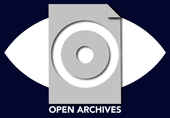Teun van Dijk’s social interaction discourse and development of oral competence in high school students of the “20 de julio” Industrial School in Puerto Wilches
DOI:
https://doi.org/10.15332/erdi.v11i2.2670Keywords:
Oral competence, Discourse, Everyday conversation, Social interaction and societyAbstract
This reflection article presents important aspects on the incidence of Teun van Dijk’s discourse theory of social interaction in the development of oral competence of ninth grade students. The work started from the identification of the problem, which is focused on strengthening students’ orality, as well as optimizing social interaction through the adequate use of discourse. Based on this, we will proceed to an extensive documentation that was embodied in the theoretical framework in which the following aspects were taken into account: The theory of social interaction discourse, oral competence and oral expression that will be the basis for the methodological process and will be executed through a qualitative approach; action research method, in which five teachers of the Spanish language area will participate, answering questions set according to the categories of analysis referring to social interaction discourse, dimensions of speech and discourse, and society. Likewise, nine ninth-grade students will enter the stage to develop a diagnostic test in which the afore mentioned categories will be taken into account. It should be noted that the information collected will be recorded in a field diary that allows for a thorough analysis of the phenomena detected. As for the results, it is expected that the didactic strategy will help develop students’ oral skills and improve their communicative processes among students and between students-teachers.
Downloads
References
Cerda, H. (1991). Medios, Instrumentos, Técnicas y Métodos en la Recolección de Datos e Información. Recuperado el 25 de Mayo de 2021, de https://silo.tips/download/capitulo-7-medios-instrumentos-tecnicas-y-metodos-en-la-recoleccion-de-datos-e-i
Colás, P. (2007). La Investigación – Acción y la generación de conocimiento educativo. Barcelona: Murcia.
Colás, P., & Buendía, L. (1998). Investigación Educativa. Sevilla: Alfar.
Dìaz, L., Torruco, U., Martìnez, M., & Varela, M. (2013). La entrevista, recurso flexible y dinámico. Recuperado el 25 de Mayo de 2021, de https://www.redalyc.org/pdf/3497/349733228009.pdf
Delors, J . (1994). Los cuatro pilares de la educación. Encierra un tesoro. México D. F: UNESCO.
Elliott, J. (1996). La investigación - acción en educación . Madrid: Morata.
Hernandez Sampieri, R., Fernandez Collado, C., & Baptista Lucio, P. (2006). Metología de la Investigación. México D. F: Mc Graw Hill Education.
Mata, M. (1993). Interacción social, discurso y aprendizaje en el aula. Recuperado el 5 de Enero de 2021, de https://idus.us.es/bitstream/handle/11441/59557/Interacci%c3%b3n%20social%2c%20discurso%20y%20aprendizaje%20en%20el%20aula.pdf?sequence=1&isAllowed=y
MEN. (1996). Programas para el desarrollo de competencias. Recuperado el 2 de Enero de 2021, de https://www.mineducacion.gov.co/1759/articles-217596_archivo_pdf_desarrollocompetencias.pdf.
Mendieta, & Giovane. (2015). Informantes y muestreo en investigación cualitativa. Recuperado el 25 de Mayo de 2021, de http://www.redalyc.org/pdf/2390/239035878001.pdf
Sentis, F. (1997). Interacción y discurso. Recuperado el 5 de Enero de 2021, de http://onomazein.letras.uc.cl/Articulos/2/N2_Sentis.pdf
Valverde, L. (1993). El diaio de campo. Recuperado el 26 de Mayo de 2021, de https://www.binasss.sa.cr/revistas/ts/v18n391993/art1.pdf
Van Dijk, T. (2001). El discurso como estructura y proceso. Barcelona: Gedisa S.A.
Downloads
Published
How to Cite
Issue
Section
License
Publishing and copyright
The authors of the articles accepted to be published, transfer proprietary rights to Espiral, Journal of Teaching and Research for the partial reproduction of the published work in electronic media (websites, indexes, directories), as long as their purposes are academic but not commercial.








